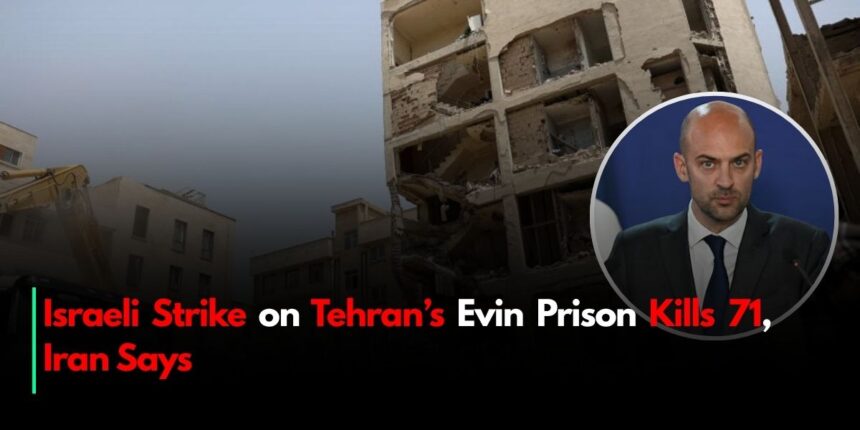Iran’s courts say that 71 people died in an Israeli airstrike on Evin Prison in Tehran on June 23. This happened just days after a shaky ceasefire with Israel after heavy fighting. The strike is a big change because it looks like Israel has included emblems of Iran’s internal security forces to its list of targets.
Targeting civilians and symbolic targets
Asghar Jahangir, a spokesperson for the court, says that the dead include administrative workers, military trainees, detainees, family members who were visiting, and those who lived nearby. Reports say that the attack hit the prison’s administration block, a guard checkpoint, and facilities where prisoners were being held. Some of them were moved following the attack.
Evin Prison is known for holding journalists, political prisoners, dual nationalities, and human rights campaigners. It has been a symbol of official repression since the 1970s and has been criticised by international rights groups for a long time.
Aiming towards a Symbol of Control
Defence Minister Israel Katz said the operation was intended at breaking through security infrastructure and was not directed at civilian areas. He said that one reason could be to make it easier for prisoners to escape.
Human rights groups, on the other hand, say that military strikes on prisons where non-combatants are confined break international humanitarian law. The UN’s human rights office and France’s foreign ministry both said the attack was unfair and warned of serious legal implications.
Effects on Diplomacy
Tehran called the bombing “unjustifiable aggression” and blasted the fact that Israeli military targets are growing well beyond nuclear and military installations. Iranian leaders said they will make Israel responsible on the world stage for attacking a building that housed state prisoners.
France was worried about two of its residents, Cécile Kohler and Jacques Paris, who were said to be in danger within Evin. Officials in Paris called for swift responsibility and highlighted the need to protect hostages and inmates according to diplomatic procedure.
The situation in the area and the ceasefire’s weakness
The Evin strike came after a violent 12-day military confrontation that started with Israeli attacks on Iranian nuclear and military sites. Iran responded by firing missiles against U.S. and Israeli bases. It looks like the truce that the U.S. helped organise will hold, but the current attack makes it far less likely that peace will last.
Now, analysts are sounding the alarm again about the targeting of Iranian civilian-prison infrastructure, saying it could lead to more violence. Analysts stress that the level of retribution drops drastically once civilians are targeted.
Last Thoughts
Israel’s attack on Evin Prison, which murdered hundreds of people and damaged a symbolic site of detention and rights abuses, is a new chapter in the conflict between Israel and Iran. Iran and international observers have strongly condemned the reported deaths of civilians, including family members and guards.
The world is at a very important point right now: will the world’s major nations act quickly to stop the crisis, or will they let the war get worse? The lives of people behind Evin’s walls and the ceasefire’s future depend on urgent diplomacy, clear laws, and international will.








